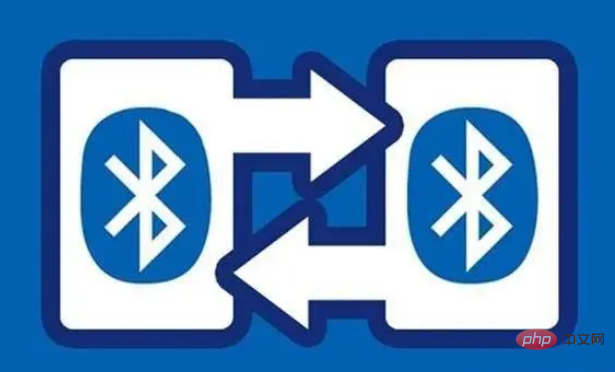
Bluetooth 5.0 is a Bluetooth technology standard proposed by the Bluetooth Technology Alliance in 2016. Bluetooth 5.0 combines wifi to assist indoor positioning, improves transmission speed and quality, and increases effective working distance. Bluetooth 5.0 is aimed at low-power devices, with wider coverage and four times faster speed. Bluetooth 5.0 will add indoor positioning assistance function. Combined with Wi-Fi, it can achieve indoor positioning with an accuracy of less than 1 meter. Low-power mode The transmission speed is capped at 2Mbps, twice that of the previous 4.2LE version.

The operating environment of this tutorial: Windows 10 system, Dell G3 computer.
Bluetooth 5.0 is a Bluetooth technology standard proposed by the Bluetooth Technology Alliance in 2016. Bluetooth 5.0 has corresponding improvements and optimizations for the speed of low-power devices. Bluetooth 5.0 combines wifi to assist indoor positioning and improve transmission speeds. and quality, increasing the effective working distance.

Bluetooth 5.0 is aimed at low-power devices, with wider coverage and four times faster speed. Bluetooth 5.0 will add indoor positioning assistance function, combined with Wi- Fi can achieve indoor positioning with an accuracy of less than 1 meter. The upper limit of transmission speed in low-power mode is 2Mbps, which is twice that of the previous 4.2LE version. The effective working distance can reach 300 meters, which is four times that of the previous 4.2LE version. It also adds navigation functions. , which can achieve 1-meter indoor positioning. In order to meet the needs of mobile clients, its power consumption is lower and it is compatible with older versions.
Main functions
Bluetooth 5.0 is aimed at low-power devices, with wider coverage and four times faster speed.
Bluetooth 5.0 will add indoor positioning assistance function, and combined with Wi-Fi, it can achieve indoor positioning with an accuracy of less than 1 meter.
The low-power mode transmission speed limit is 2Mbps, which is twice that of the previous 4.2LE version.
The effective working distance can reach 300 meters, which is 4 times that of the previous 4.2LE version.
Add navigation function, which can achieve 1 meter indoor positioning.
In order to meet the needs of mobile clients, its power consumption is lower and it is compatible with older versions.

The difference between Bluetooth 5.0 and 4.0:
The transmission efficiency of Bluetooth 5.0 and Bluetooth 4.0 has been improved. 2 times, the transmission distance is increased by 4 times, the broadcast mode information capacity is increased by 8 times, the power consumption is lower, and it is compatible with older Bluetooth versions. Obviously 5.0 is better.
Advantages of Bluetooth 4.0
Bluetooth 4.0 is the 2012 Bluetooth version and an upgraded version of 3.0; it is more power-saving, low-cost, and has a low latency of 3 milliseconds than the 3.0 version. , ultra-long effective connection distance, AES-128 encryption, etc.; usually used in Bluetooth headsets, Bluetooth speakers and other devices.
Advantages of Bluetooth 5.0
Bluetooth 5.0 will add more navigation functions, so this technology can be used as an indoor navigation beacon or similar positioning device, combined with wifi Achieve indoor positioning with an accuracy of less than 1 meter. For example, if you are a road addict, you can still use Bluetooth technology to find your way around the business center of Nottingham University.
The difference between Bluetooth and WiFi
Bluetooth technology is a low-rate short-distance wireless communication technology. The rate is generally 3Mpbs and the effective distance is within 10m. . WiFi technology is a high-speed short-distance wireless communication technology, with a speed up to 300Mpbs and an effective distance of about 100m. Both use internationally recognized free frequency bands to transmit signals, but Bluetooth technology is more secure than WiFi technology.
For more related knowledge, please visit the FAQ column!
The above is the detailed content of What does Bluetooth 5.0 mean?. For more information, please follow other related articles on the PHP Chinese website!